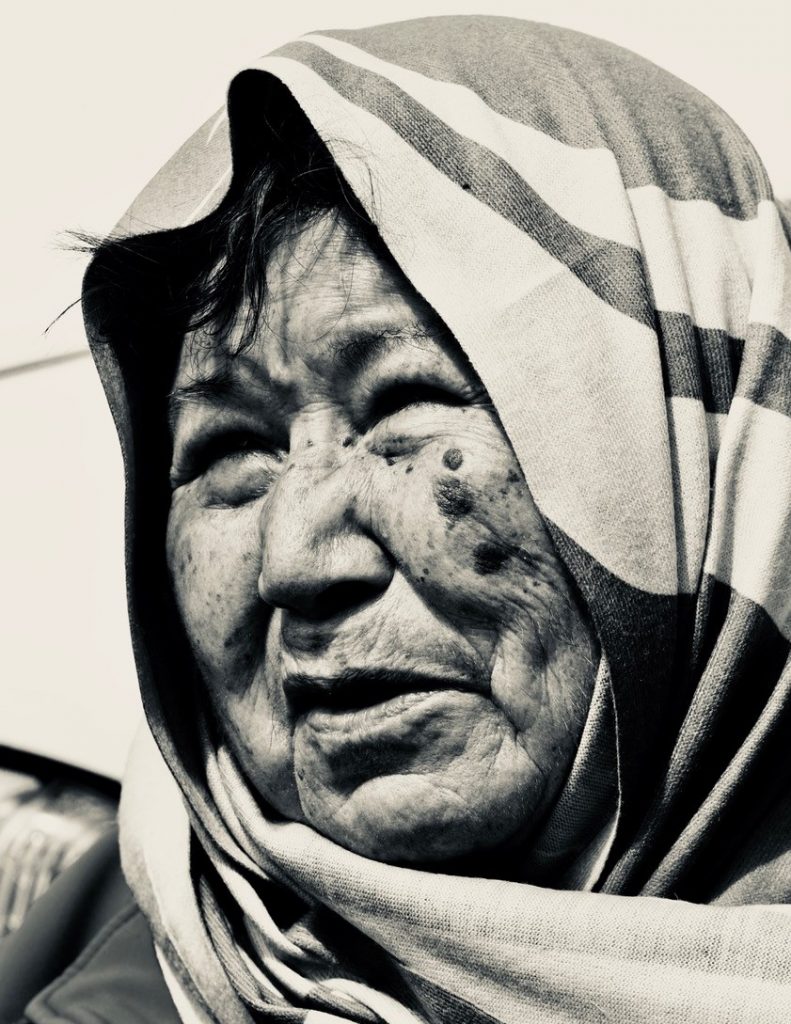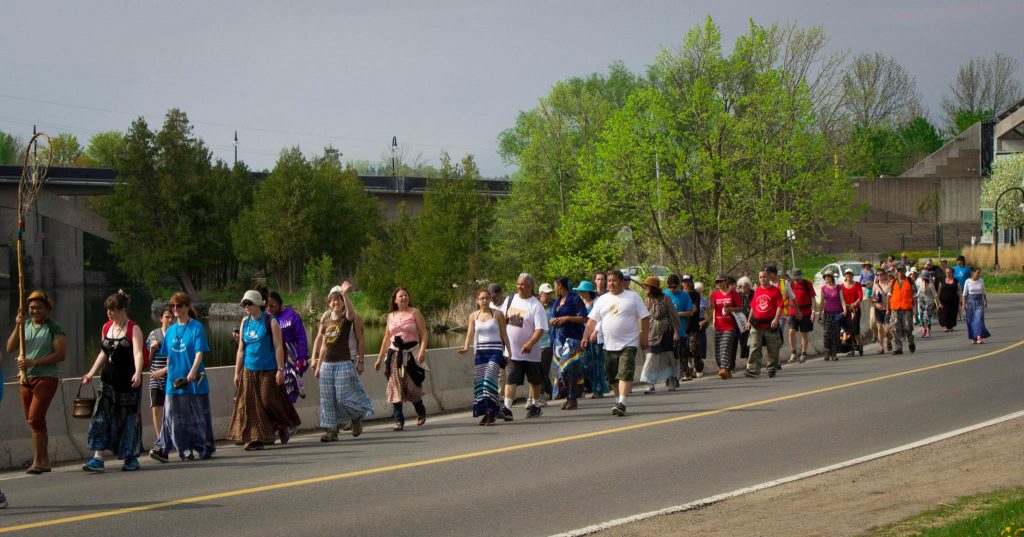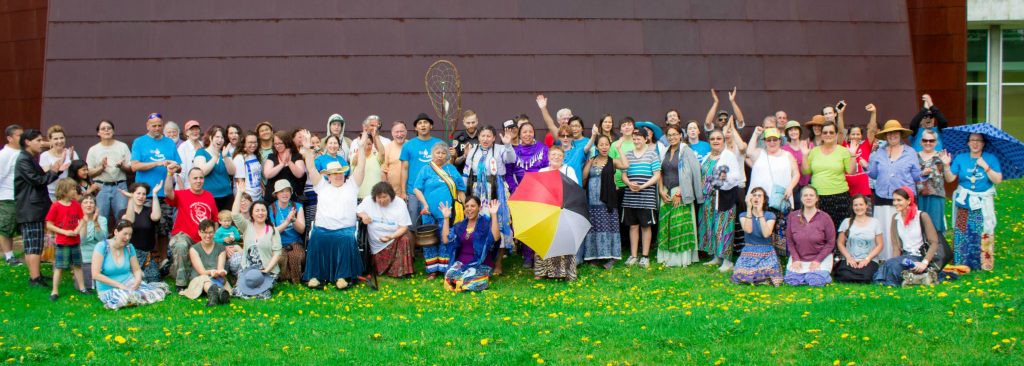History of the Water Walk
Over 110 First Nations communities across Canada are on boil water advisories every day. Many of these communities are surrounded by water that is unfit to drink, resulting in a tremendous health hazard. Anishinaabe Grandmother Josephine Mandamin had a vision of bringing awareness of the pollution in our waters. She began to walk. She has walked around the
Great Lakes and the St. Lawrence River. In 2011, she carried water from the East, south West and North directions to the center of Turtle Island (North America). When asked, “Why do you do it?”, she replied with
“Nga zhidchigemin!” (I will do it for the water).

Josephine has become our inspiration and mentor. In 2004, Peterborough experienced a major flood. The watershed overflowed and the infrastructure was unable to handle so much water. The polluted water traveled downstream and into Rice Lake where nearby residents and cottagers, including First Nations communities, were put on boil water advisory.
Locally, the Water Walks in the Kawarthas began with Elder Shirley Williams and Liz Osawamick in 2010. Each year since then, the Water Walkers have walked around a lake in this area to bring a greater awareness of our collective responsibility to maintain clean water for the next seven generations.
We are now walking for our future!
What is a Water Walk?

A copper pail is filled with water and carried around a lake by Anishinaabe-kwewag (Indigenous women) who bless and sing to the water.
Water Walks braid ceremony, spirit and community to bring people together to teach us about the sacredness of water. With this awareness, we
can become informed caretakers of our waters.
Who are the Water Walkers?

The Water Walkers are a diverse group of people led by Anishinaabe-kwewag who use Indigenous knowledge and tradition to uphold our responsibility to care for the water.
We, along with dedicated supporters, women and men including non-First
Nations incorporate scientific knowledge to teach and practice water stewardship. Without clean water sources, Creation could not survive the pollution that is overtaking the lakes, streams and oceans.